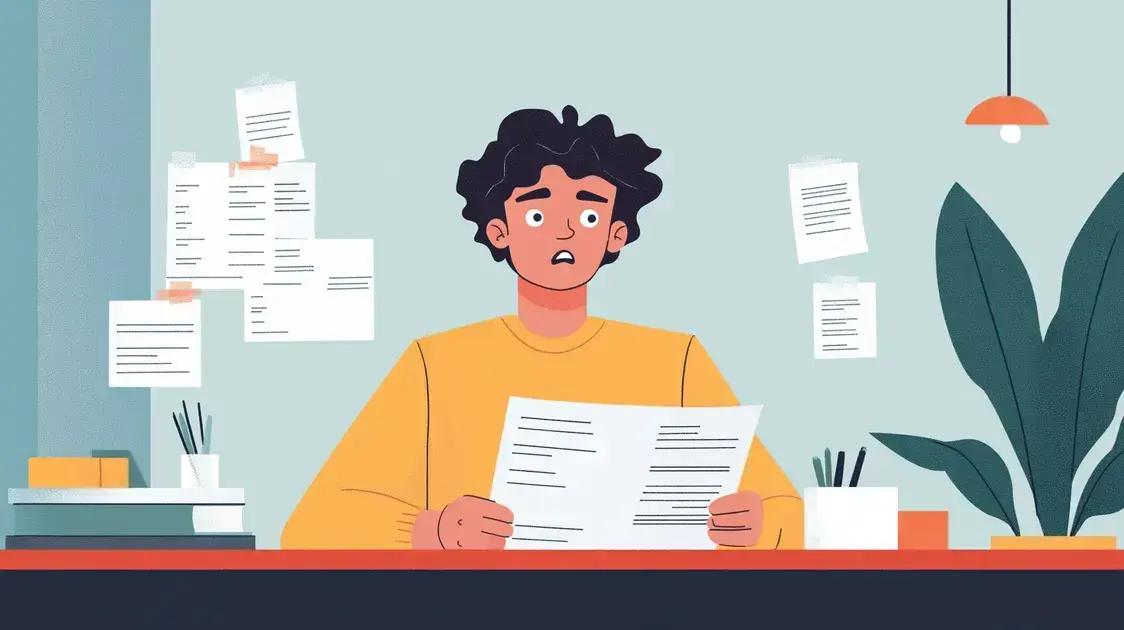Anúncios
Credit Repair Techniques are essential for anyone aiming to improve their financial situation. Whether you’re dealing with past mistakes or just looking to boost your credit score, understanding these methods can put you on the path to a healthier financial future.
One powerful technique is disputing inaccuracies on your credit report. By addressing errors, you can potentially improve your score without much effort. Even small changes can have a significant impact on your financial outlook.
To truly take control, you’ll need to pay down high credit card balances and reduce your credit utilization. This strategy, combined with others, can set you up for success. Curious to learn how these techniques can be applied to your situation? Keep reading to find out!
Anúncios
Understanding Credit Repair Techniques
Understanding credit repair techniques is important for anyone looking to improve their financial health.
These methods can help you address negative marks on your credit report and increase your credit score. When you understand how credit repair works, you can take the right steps to regain control of your credit.
One common technique is disputing inaccuracies on your credit report. If there are errors, you can file a dispute with the credit bureau. The bureau will investigate, and if the information is wrong, it will be corrected. This simple action can significantly improve your credit score.
Another valuable technique is paying down high credit card balances. Keeping your credit utilization low can boost your score.
Anúncios
Make a plan to pay off your debts methodically, ensuring you’re not overextending yourself. By using these techniques wisely, you can pave your way toward better credit and financial freedom.
Effective Strategies for Credit Improvement
Effective strategies for credit improvement begin with understanding your credit report. Regularly checking it can help you spot mistakes that may lower your score. If you see any errors, it’s important to dispute them right away. By correcting inaccuracies, you can start seeing improvements in your credit profile.
Another key strategy is to make payments on time. Late payments can hurt your score significantly, so setting up reminders or automatic payments can ensure you never miss a due date. This simple habit shows lenders that you are responsible, which can lead to better credit offers in the future.
Lastly, consider using a credit building tool, such as a secured credit card. These cards require a deposit and help you build your credit when used responsibly.
Make small purchases and pay them off each month to establish a solid payment history. This approach can be a big step towards turning your credit around.
Common Mistakes in Credit Repair

One common mistake in credit repair is not checking your credit report regularly. Many people assume their credit is fine without looking at it. This can lead to missing important errors that could hurt your score. It’s vital to review your report at least once a year to stay informed.
Another mistake is ignoring small debts. Some individuals think that minor debts won’t impact their credit score much. However, any unpaid debt can lead to collections, which will significantly affect your score. Paying off even small amounts can prevent bigger issues down the road.
Finally, some people rush into using credit repair services without doing their research. Not all services are trustworthy, and some may promise quick fixes that are not realistic. It’s essential to understand your options and choose a credible service if you decide to seek help with your credit repair journey.
How to Choose a Credit Repair Service
Choosing a credit repair service can feel overwhelming, but it doesn’t have to be. Start by looking for a service that offers a free consultation.
This gives you a chance to ask questions and see if they understand your needs. A good service should also be transparent about their fees and what services they provide.
Next, check the reviews and ratings of the credit repair service. Look for feedback from past clients on their experiences. Positive reviews can be a good sign, while complaints about lack of communication or results should raise red flags.
Finally, ensure the service has a solid track record of success. This means they should have been in business for a while and can show examples of improved credit scores from clients. Doing your research will help you find a trustworthy service to guide you on your credit repair journey.
The Role of Credit Counseling in Repairing Credit
Credit counseling plays a significant role in repairing credit by providing guidance and support. During counseling sessions, a trained expert helps you analyze your financial situation.
They will review your income, expenses, and debts to create a personalized plan that fits your needs. This tailored approach helps you understand your credit better and find ways to improve it.
Another important aspect of credit counseling is education. Counselors teach you about credit scores, the factors that affect them, and how to manage your debts wisely. This knowledge empowers you to make better financial decisions and avoid common pitfalls that can hurt your credit in the future.
Finally, credit counseling can connect you with resources to help you pay down debt. This may include developing a budget, setting up a debt management plan, or negotiating with creditors.
By working with a counselor, you can take proactive steps that lead to credit repair and ultimately unlock your financial freedom.
Building a Stronger Credit Profile
Building a stronger credit profile involves more than just fixing errors or paying down debt. A key strategy is maintaining a good mix of credit types, such as credit cards, auto loans, or personal loans.
Lenders appreciate a diverse credit history, showing that you can manage different types of credit responsibly. Start by keeping older accounts open to lengthen your credit history and avoid closing them unless absolutely necessary.
Another way to boost your credit profile is by reducing your overall debt-to-income ratio. This ratio compares the total amount of your debt to your total income and is an important factor lenders consider when assessing your creditworthiness.
If possible, try to increase your income or decrease your debt to improve this ratio, as it could make a big difference in your credit score over time.
The Importance of Patience in Credit Repair
While you might be eager to see improvements, it’s important to be patient during the credit repair process. Credit repair is not an overnight fix; it takes time and consistent effort to see significant results.
The key is to stay committed to the strategies that will improve your credit score, even if progress feels slow at first. Remember, every positive action you take is a step toward financial stability.
Additionally, keep in mind that credit repair is an ongoing process. Once you’ve improved your credit score, continue monitoring your credit regularly to ensure no new issues arise.
By maintaining healthy financial habits and staying vigilant, you can protect your credit long-term and set yourself up for future success. Keep reading to discover more tips for sustained credit improvement.




